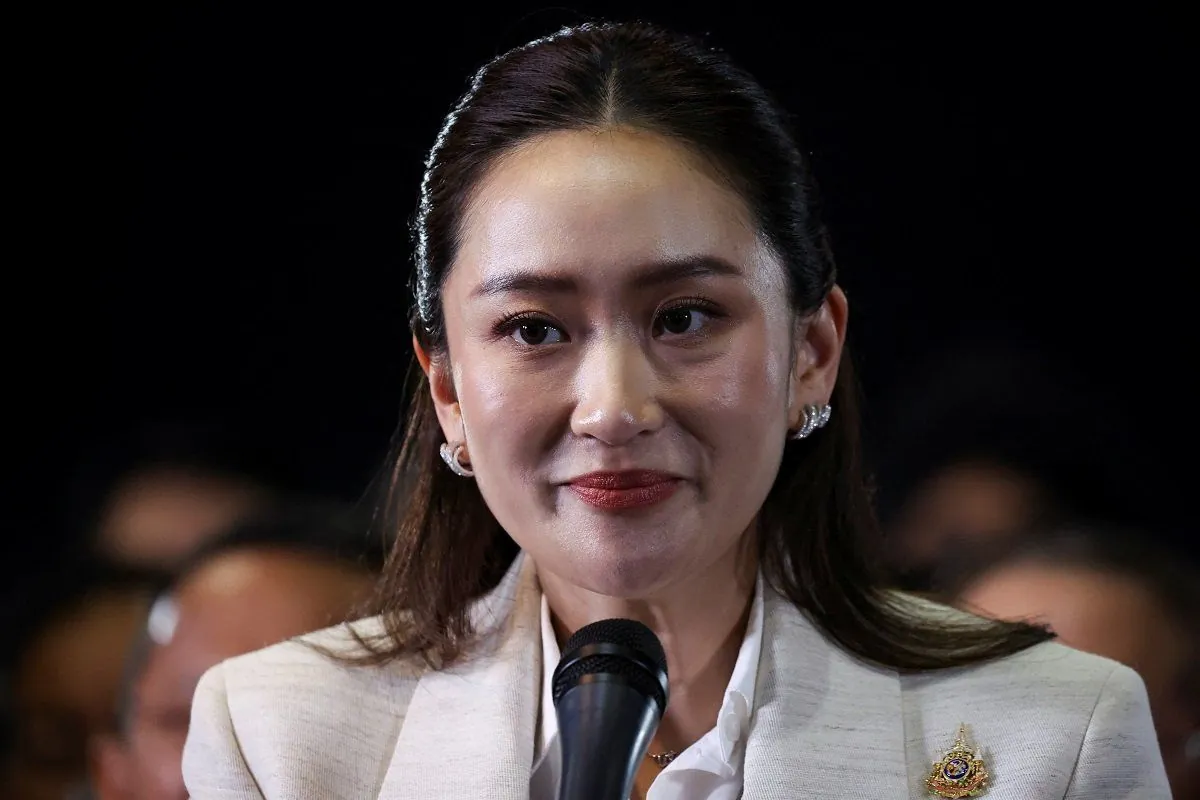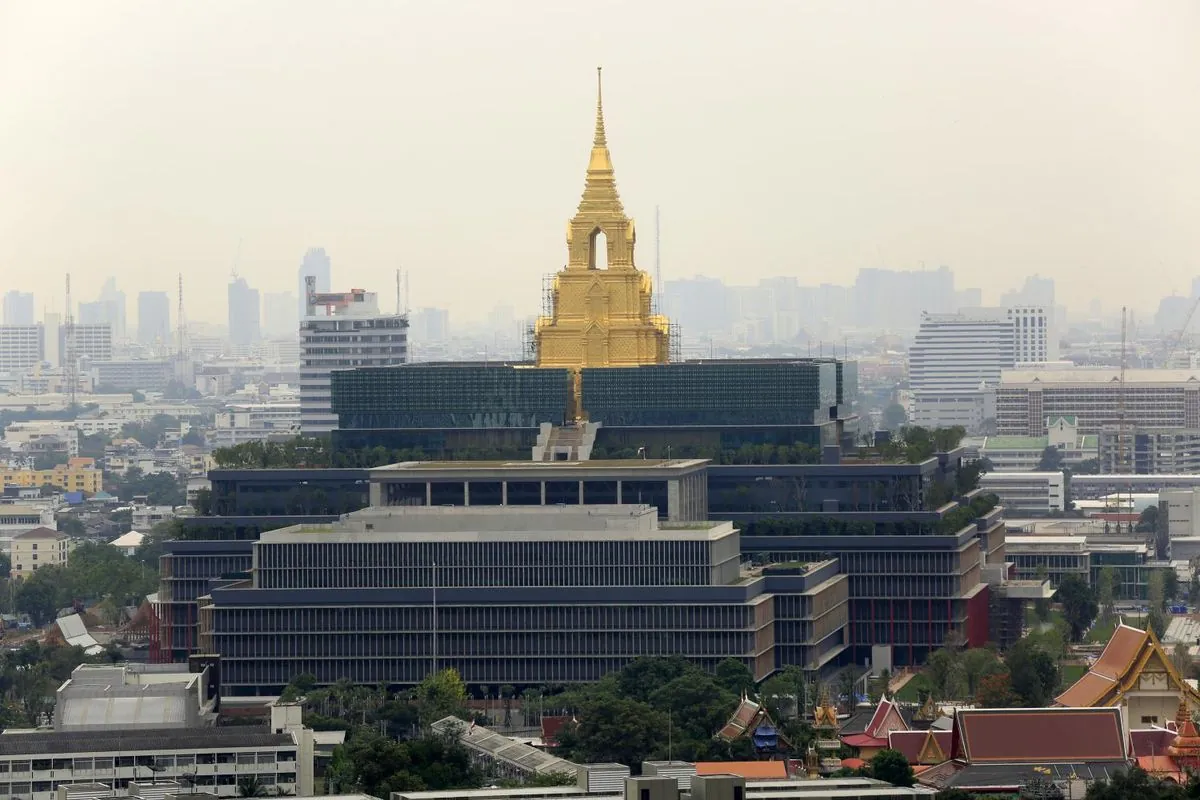Paetongtarn Shinawatra: Thailand's Youngest PM Faces Political Challenges
Paetongtarn Shinawatra, 37, becomes Thailand's youngest prime minister amid political turmoil. Her election follows the dissolution of the Move Forward party and her predecessor's removal, marking a new chapter in Thai politics.

Paetongtarn Shinawatra, aged 37, has been approved by Thailand's Parliament to serve as the country's next prime minister. This development comes at a time of significant political upheaval in the Southeast Asian nation, which has experienced 13 coups since 1932 and operated under 20 different constitutions.
The young leader's ascension to power follows a series of recent events that have reshaped Thailand's political landscape. In May 2023, the progressive Move Forward party secured a pivotal election victory, ending military rule. However, the party was subsequently dissolved by the Constitutional Court approximately one year later, in August 2024.
Paetongtarn's political journey began in 2021 when she joined the Pheu Thai party, founded by her father, former prime minister Thaksin Shinawatra. Initially serving in an advisory role, she transitioned to become one of the party's prime ministerial candidates in late 2022. The 2023 general election saw Pheu Thai secure the second-highest number of seats in the House of Representatives, positioning Paetongtarn for her current role.

The Shinawatra family has a long and complex history in Thai politics. Thaksin Shinawatra, a telecommunications tycoon turned politician, served as prime minister from 2001 to 2006. Paetongtarn's aunt, Yingluck Shinawatra, became Thailand's first female prime minister, holding office from 2011 to 2014. Both leaders, along with Paetongtarn's uncle Somchai Wongsawat, who briefly served as prime minister in 2008, were removed from power before completing their terms.
Thailand's political system is unique, combining elements of a constitutional monarchy with democratic processes. The country's dominant religion, Buddhism, practiced by about 95% of the population, plays a significant role in shaping cultural and political norms. This interplay between tradition and modernity presents both challenges and opportunities for the new prime minister.
As Paetongtarn prepares to take office, she faces numerous challenges. Thailand's economy, the second largest in Southeast Asia, requires attention and strategic management. The new prime minister has pledged to expand healthcare coverage, reduce public transit fees, and double the daily minimum wage. These promises align with the populist policies that have been a hallmark of Shinawatra-led governments.
"I am committed to serving the Thai people and addressing the economic challenges we face. While I respect my family's legacy, I am my own person with my own ideas for Thailand's future."
The dissolution of the Move Forward party and its swift reorganization into the Peoples' Party signals ongoing political tensions. Paetongtarn must navigate these complexities while maintaining support from various factions within Thai society.
As Thailand moves forward under new leadership, the country's rich cultural heritage and economic potential remain significant assets. Known as the "Land of Smiles" and famous for its unique traditions such as the Songkran water festival, Thailand continues to captivate both its citizens and the international community. The new prime minister's ability to balance these cultural elements with the demands of modern governance will be crucial in shaping the nation's future.


































